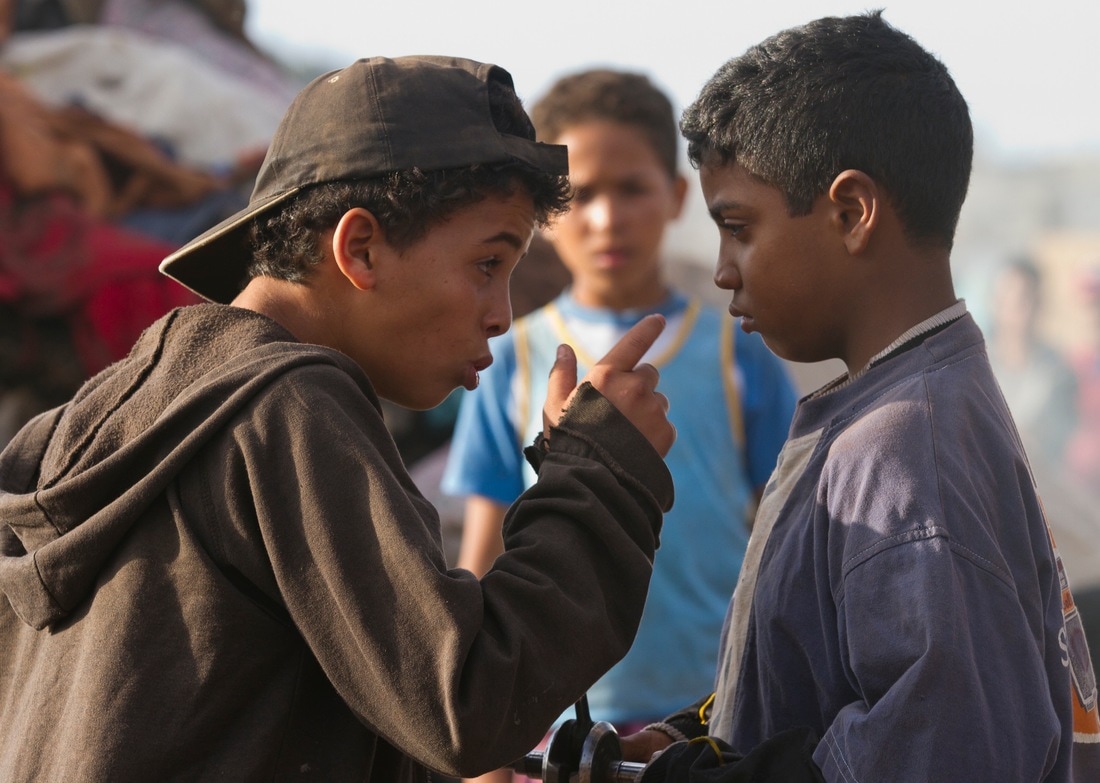Ayouch intersperses Horses of God with brief bursts of symphonic beauty that are a needed respite from the generally desperate setting. Hamid, Tarek, and their friends race between alleys to soaring violin strings, oblivious to wider circumstances and only focused on the chase or the destination. In between these moments, the film is a difficult watch. Horses of God is the outlier in the 'kids cursing is funny' trope, because it's disturbing here, even in a foreign language. There's a lot more talk of rape in their back and forth, and just as the viewer is wondering where they learned to talk like that, adults chime in with disgusting comments about which friend is raping who. That's only a few minutes into a two-hour film, and it stays bleak and numbing. By the time the characters have submitted to extremism, it's apparent why they would reject a coarse, near-hopeless society for a sense of belonging and structure.
As thorough as the sociopolitical aspect of Ayouch's film is, the fraternal dynamic between Hamid and Tarek transcends it and makes the characters instantly recognizable. Anyone who's had a larger-than-life sibling or an intense familial rivalry is going to see some part of themselves in the two characters. As a Tarek for a period of time, I identified with how much of his life is guided by Hamid. His friends are your friends, his hobbies are your hobbies. Their relationship gets flipped in the latter parts of the film, where Tarek has more of a talent for extremism than Hamid, earning the adulation of the cell. The benefit of spending all that time with the brothers pays off here, as Hamid falling behind grants him some perspective on their mission. However, all the previous events, large and small, in their lives have made it impossible for Tarek to pay heed to his big brother anymore, such that when Hamid's finally, unequivocally right and has an unselfish impulse, it heartbreakingly falls on deaf ears. Hamid is quickly established as a brutal and cruel individual, but Rachi is able to impart some affecting sorrow to the character in these moments.
Ayouch, a Frenchman of Moroccan origin, didn't live this life but in adapting a book by a Moroccan author, he has made an empathetic, and necessary, picture of how one's life can be scooped up by the historical forces of the day. The film doesn't excuse the brothers, but it understands them, an important distinction often missing from political discourse. This kind of global cinema is a welcome antidote to the London's Have Fallen of the world. B+

 RSS Feed
RSS Feed